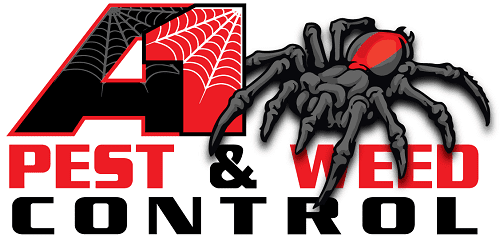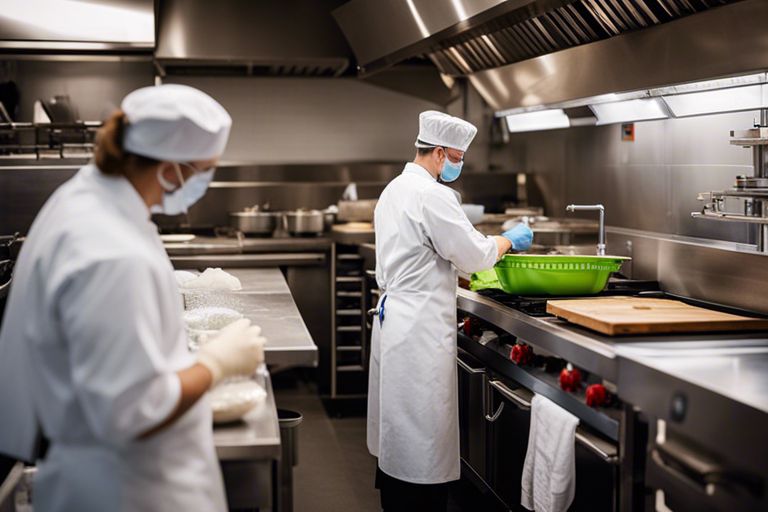Food Safety in the vibrant city of Melbourne is of utmost importance to protect the health and well-being of its residents and visitors. Ensuring that food establishments comply with strict food safety standards is crucial in preventing foodborne illnesses and maintaining the reputation of Melbourne’s diverse culinary scene. From bustling cafes to fine dining restaurants, every food business in Melbourne must adhere to rigorous regulations to guarantee the safety of the food they serve.
Key Takeaways:
- Regulatory Framework: Melbourne has a robust regulatory framework in place to ensure compliance with food safety standards.
- Regular Inspections: Food establishments in Melbourne are subject to regular inspections to ensure they meet the required standards.
- Training and Education: There is a focus on training and educating food handlers in Melbourne to promote compliance with safety standards.
- Swift Enforcement: Authorities in Melbourne take swift enforcement actions against non-compliant food businesses to protect public health.
- Consumer Awareness: Efforts are made in Melbourne to raise consumer awareness about food safety standards, encouraging them to choose compliant establishments.
Overview of Food Safety Regulations in Melbourne
National Food Safety Standards
One of the pillars of food safety regulations in Melbourne is adherence to the national food safety standards set by Food Standards Australia New Zealand (FSANZ). These standards encompass various aspects of food safety such as food handling, storage, preparation, and transportation. Compliance with these standards is crucial for ensuring the safety and quality of food products consumed by the public.
State-Level Regulations and Enforcement
On a state level, the Department of Health and Human Services in Victoria plays a key role in regulating and enforcing food safety standards in Melbourne. This department oversees the implementation of the Food Act 1984 and the Australia New Zealand Food Standards Code within the state.
Melbourne has its own set of regulations that complement the national standards to address specific food safety concerns within the city. These regulations are designed to protect the health and well-being of Melbourne residents and visitors by ensuring that all food businesses operate in compliance with the highest safety standards.
Role of the Melbourne City Council
This section will explore the crucial role played by the Melbourne City Council in upholding food safety standards within the city. The council works in collaboration with state authorities to conduct regular inspections of food businesses, provide education and training programs, and enforce regulations to maintain high levels of food safety across Melbourne.
Role of the Melbourne City Council
Food safety is a top priority for the Melbourne City Council, and they work tirelessly to ensure that all food establishments within the city comply with regulations. The council also offers support and guidance to food businesses to help them understand and meet the necessary requirements for operating safely and legally.
Enforcement
Enforcement of food safety regulations in Melbourne is strict and non-negotiable. Inspections are carried out regularly to monitor compliance, and any violations are met with appropriate enforcement actions to protect the public from potential health risks. The Melbourne City Council, in coordination with state authorities, takes a zero-tolerance approach towards any lapses in food safety standards to maintain the city’s reputation as a hub for safe and quality food products.
Compliance Framework
Regular Inspections and Audits
An vital part of ensuring compliance with food safety standards in Melbourne is through regular inspections and audits conducted by the local health authorities. These inspections are typically unannounced and serve to assess the establishment’s adherence to the prescribed protocols and regulations. By conducting thorough inspections, authorities can identify any potential risks or violations and take necessary actions to rectify them promptly.
Certification and Accreditation Processes
With the aim of maintaining high standards of food safety, certification and accreditation processes play a crucial role in Melbourne’s compliance framework. Food establishments are required to obtain relevant certifications from recognized bodies to demonstrate their commitment to following best practices in food safety. Accreditation processes further validate the establishment’s compliance with industry standards, providing a level of assurance to consumers.
For instance, obtaining certifications such as HACCP (Hazard Analysis and Critical Control Points) or ISO 22000 showcases a business’s dedication to food safety management systems. These certifications not only enhance the credibility of the establishment but also improve its overall reputation within the industry.
Training and Education Programs for Food Handlers
Programs designed to educate and train food handlers are integral to ensuring compliance with food safety standards. In Melbourne, food establishments are encouraged to provide comprehensive training to their staff on proper food handling practices, hygiene protocols, and safety measures. By equipping food handlers with the necessary knowledge and skills, establishments can significantly reduce the risk of foodborne illnesses and contamination.
Regular training and education programs not only empower food handlers to perform their duties effectively but also instill a culture of food safety within the establishment. By investing in the continuous development of their staff, businesses can uphold the highest standards of food safety and compliance in Melbourne.

Monitoring Food Safety in Retail and Hospitality
Compliance in Restaurants and Cafes
Food safety in restaurants and cafes in Melbourne is monitored closely by the local health authorities to ensure compliance with food safety standards. Inspections are carried out regularly to check for cleanliness, proper storage of food, temperature control, and overall hygiene practices. It is crucial for restaurants and cafes to maintain detailed records of food handling and preparation to demonstrate their commitment to food safety.
Food Safety in Fast Food Outlets
Hospitality establishments such as fast food outlets in Melbourne must also adhere to strict food safety regulations. These outlets often face high customer volume, making it crucial to maintain food safety practices at all times. Regular training of staff on food handling, cleanliness, and sanitation is crucial to prevent foodborne illnesses and maintain a good reputation.
Fast food outlets are required to monitor food temperatures, implement proper hygiene practices, and ensure that all employees follow food safety protocols. Inspections are conducted periodically to verify compliance with food safety standards and to address any potential risks to public health.
Supermarkets and Grocery Stores Standards
An important aspect of food safety in Melbourne involves monitoring supermarkets and grocery stores to ensure the quality and safety of food products. These establishments are required to maintain proper storage conditions, adhere to expiry dates, and provide accurate labeling of products. Regular audits are conducted to verify that food safety protocols are being followed and to address any issues promptly.
Food safety in supermarkets and grocery stores is crucial to prevent contamination, spoilage, and the spread of foodborne illnesses. By maintaining high standards of cleanliness, proper food handling, and storage practices, these establishments play a vital role in ensuring the safety and well-being of consumers.
Food Safety in Melbourne’s Supply Chain
Production and Processing Compliance
The production and processing of food in Melbourne are governed by strict regulations to ensure the safety and quality of the final products. Local producers and processors must comply with food safety standards set by the relevant authorities to uphold the integrity of the supply chain.
Import and Export Controls
Controls on import and export activities play a crucial role in maintaining food safety standards in Melbourne. Imported food products must meet the same stringent requirements as locally produced goods to prevent contamination and ensure consumer protection.
Imported food items go through rigorous inspection processes at ports of entry to verify compliance with Melbourne’s food safety regulations. This includes thorough checks on labeling, packaging, and product quality to safeguard public health.
Distribution and Storage Requirements
Supply chain logistics in Melbourne are tightly regulated to prevent food contamination and spoilage during distribution and storage. Proper handling procedures and temperature controls are important to maintain the integrity of the food products throughout the supply chain.
This ensures that consumers receive safe and high-quality food products at every stage of the supply chain, from production to consumption.
Public Health and Food Safety
Communicable Diseases and Foodborne Illness Prevention
Safety is paramount when it comes to public health and food safety in Melbourne. Preventing the spread of communicable diseases and foodborne illnesses is a top priority for all food establishments. By following strict hygiene practices, such as proper handwashing and sanitization of kitchen equipment, businesses can greatly reduce the risk of contamination.
Allergen Management and Consumer Information
On the topic of allergen management and consumer information, it is crucial for food businesses to accurately label their products with allergen information. This helps individuals with food allergies make informed choices about what they consume. Being transparent about potential allergens also builds trust with customers and shows a commitment to their safety.
Information about allergens should be easily accessible and clearly displayed in menus or on packaging. Training staff on allergen awareness is also important to ensure that they can provide accurate information to customers and handle allergen-related inquiries effectively.
Crisis Management and Response to Food Safety Incidents
Any food business operating in Melbourne must have a robust crisis management plan in place to swiftly respond to food safety incidents. Whether it’s a contamination issue or a product recall, having procedures in place to address the situation is imperative to protect public health.
Another key aspect of crisis management is communication. Businesses should be transparent and open with authorities and customers about any food safety incidents. By taking ownership of the situation and providing clear information, businesses can minimize the impact on their reputation and prevent further harm to consumers.
Innovative Practices in Ensuring Compliance
Use of Technology for Monitoring and Reporting
For Food Safety in Australia: How to Implement …, innovative practices are being employed in Melbourne to ensure compliance with food safety standards. Technology plays a crucial role in monitoring and reporting processes. Businesses are using advanced digital tools and software solutions to track and analyze food safety data in real-time. This allows for proactive measures to be taken to address any potential issues before they become a threat to public health.
Community Engagement and Awareness Campaigns
For community engagement and awareness campaigns, Melbourne has taken a proactive approach to involve the public in promoting food safety practices. Various initiatives such as workshops, seminars, and online campaigns are organized to educate both consumers and businesses about the importance of adhering to food safety standards. By fostering a culture of awareness and responsibility, the community becomes an active participant in ensuring food safety compliance.
With the rise of social media and digital platforms, these campaigns have a broader reach and greater impact in creating awareness about food safety standards. By engaging with the community, Melbourne is building a network of informed individuals who can advocate for and uphold food safety practices in various settings.
Incentives and Awards for High Compliance Rates
With incentives and awards for high compliance rates, Melbourne is motivating businesses to prioritize food safety standards. Recognizing and rewarding establishments that consistently maintain high levels of compliance not only incentivizes others to follow suit but also creates a competitive environment focused on ensuring the wellbeing of consumers. These incentives can range from public acknowledgment and certifications to tangible rewards that demonstrate a commitment to excellence in food safety.
Any business that goes above and beyond in adhering to food safety regulations is eligible for incentives and awards, showcasing Melbourne’s commitment to fostering a culture of food safety excellence. By highlighting and celebrating establishments that excel in compliance, the city sets a standard for others to aspire to, ultimately improving overall food safety practices throughout the region.
Challenges and Opportunities
Addressing Non-compliance Issues
All food businesses in Melbourne must adhere to food safety standards to ensure the health and well-being of consumers. However, non-compliance issues continue to pose challenges in the industry. These issues can range from improper food handling practices to inadequate sanitation procedures. It is crucial for regulators and food businesses to work together to address these non-compliance issues effectively.
Adapting to Changing Food Trends and Regulations
Addressing the rapidly changing food trends and regulations is crucial for food businesses to stay compliant and competitive in the market. This includes keeping up with consumer demands for healthier options, as well as staying informed about the latest food safety regulations. Adapting to these changes requires continuous training and education for food industry professionals.
This ensures that businesses are equipped to meet the evolving needs of consumers while maintaining high standards of food safety.
Strengthening Cross-Sectoral Collaboration
This chapter explores the importance of forging strong partnerships and collaborations among various sectors involved in the food industry. Strengthening cross-sectoral collaboration can lead to improved communication, sharing of best practices, and more effective enforcement of food safety standards. By working together, stakeholders can create a more cohesive and consistent approach to food safety compliance.
Opportunities
To enhance cross-sectoral collaboration, opportunities exist for regulators, industry associations, academia, and food businesses to come together and share knowledge and resources. This collaborative effort can lead to the development of innovative solutions and the establishment of industry-wide standards that promote food safety and compliance.
Summing up
With this in mind, it is evident that compliance with food safety standards in Melbourne is crucial to ensure the well-being of consumers and maintain the reputation of food establishments. The stringent regulations set by governing authorities such as the Victorian Department of Health and Human Services play a vital role in upholding the highest standards of food safety across the city.
By adhering to these regulations, food establishments not only protect the health of their customers but also build trust and credibility within the community. It is imperative for businesses to stay informed about the latest food safety guidelines and invest in proper training and resources to guarantee compliance at all times.
FAQ
Q: What are the food safety standards in Melbourne?
A: The food safety standards in Melbourne are governed by the Food Act 1984 and the Australia New Zealand Food Standards Code. These standards are in place to ensure the safety and quality of food consumed by the public.
Q: How are food businesses in Melbourne regulated for compliance with food safety standards?
A: Food businesses in Melbourne are regulated by the local council’s health department, which conducts regular inspections to check if they are meeting the required food safety standards. Businesses are also required to follow the guidelines set out in the Food Safety Program.
Q: What are the consequences of not complying with food safety standards in Melbourne?
A: Failure to comply with food safety standards in Melbourne can lead to serious consequences, including fines, closure of the business, and legal action. It can also result in a loss of reputation and trust among customers.
Q: How can food businesses ensure compliance with food safety standards in Melbourne?
A: Food businesses can ensure compliance with food safety standards in Melbourne by implementing a Food Safety Program, conducting regular staff training, maintaining proper hygiene practices, keeping records of food handling processes, and cooperating with health department inspections.
Q: Where can I find more information on food safety standards in Melbourne?
A: For more information on food safety standards in Melbourne, you can visit the website of the Department of Health and Human Services Victoria or contact your local council’s health department for guidance and resources. It is important for food businesses to stay informed and updated on the latest food safety regulations to ensure the safety of their customers.

